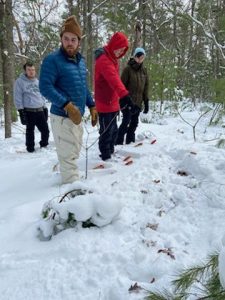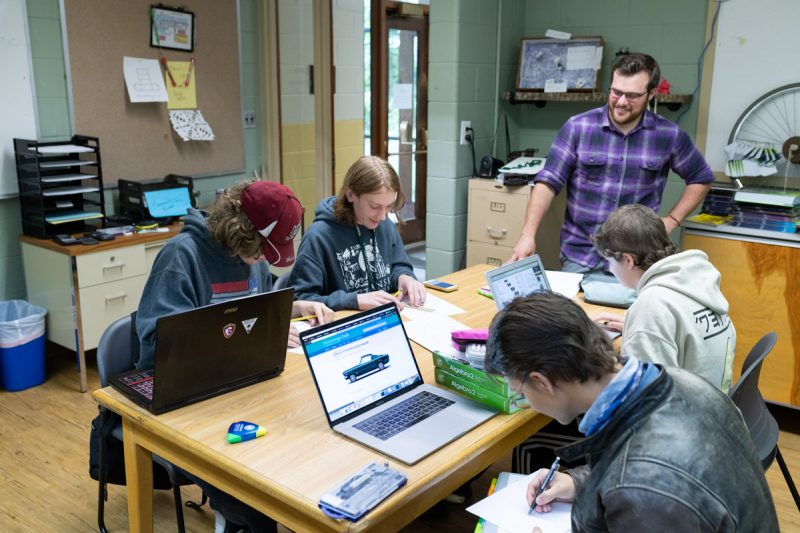
Fostering Student Ownership In Learning
About a 3 minute read –
Student Ownership For Improved Outcomes
The process of schooling is not a race to the finish line. It is not a hoop through which we jump. Instead, it is a practice that instills a habit of curiosity and a life-long enthusiasm for learning. Schooling is about learning how to learn, so life can keep growing long after our school days have ended. Creating this greater understanding as to the purpose of schooling is essential to improving outcomes for students and society.
“Education is not preparation for life. Education is life itself” – John Dewey
 Student ownership in their learning process is the result of:
Student ownership in their learning process is the result of:
- the relevancy students feel in the topics they are studying,
- the sense of adventure embedded in the methods they are using,
- the places learning happens and,
- the personal relationships formed in the process.
Student ownership is a key indicator of post-secondary success. As a sense of ownership increases, the level of investment and personal responsibility also increases.
Roadblocks To Student Ownership In Their Own Education
Nationwide, there is concern about the lack of ownership and investment students have in their education. In many settings, students, parents, and teachers express concern that they are just “going through the motions”; enduring school instead of experiencing learning. This trend correlates with the national drift towards standardization, scripted curricula, and test-driven evaluation. Feedback has become entirely extrinsic.
An accumulation of points and grades
The goal of schooling has devolved to the accumulation of points and grades instead of the construction and application of new understanding. Students find themselves subjugated to lessons designed from afar, with little respect for their personal experiences, interests, or unique needs. Using cooking as a metaphor, many students are being subjected to heavily processed foods instead of freshly cooked, locally sourced meals. They have no voice in content, no choice in methodology, and no personalization of strategies. In such settings, students have no room to exert ownership as ownership is not offered nor expected of them.
All of this can easily be reversed for your child and for the nation.
How To Support Students
Great schools create space for students to self-direct. This is accomplished through choices, deliberate reflection on learning strategies, goal setting, maintenance of high expectations, celebration of self-advocacy, lots of support for those needing help, and plenty of patience for “try-try again”. It is facilitated by great teachers who let go of the lesson in favor of the learning.
Teachers make the difference
Learning at school doesn’t happen by accident. It is constructed through deliberate interactions and experiences; experiences secretly designed by a teacher in the quiet hours, in the middle of the night, while driving in their car, or while helping their own children with their homework. It is born out of concern and attention to each student in their class. Good teachers build good lessons. Great teachers go one step further. Great teachers eagerly hand over any pride of ownership in the lesson to the students at just the right moment. Great teachers step into the shadows at the instant knowledge and curiosity takes root, allowing each student to assume total ownership of the experience and the newly acquired wisdom.
The Moment Student Ownership Is Created
In a perfect lesson, the student is rewarded with the sense that they did it all by themselves. With this sense of accomplishment, ownership is created, and life-long learning follows. It is at this moment when the songwriting is over and the dancing begins. The student owns the dance, and it is beautiful.
This post was written by Rob Hansen, Head of School at The Leelanau School. Rob believes in the tenants of “learning by doing”, the synergy of intellectual, social and emotional development, and that the importance of personal relationships in support of learning are not new ideas. Read Rob’s Head of School Message.
Want more info on supporting teens?
PIQUED YOUR INTEREST? You might also like our post What Does It Take For Students To Love School?

